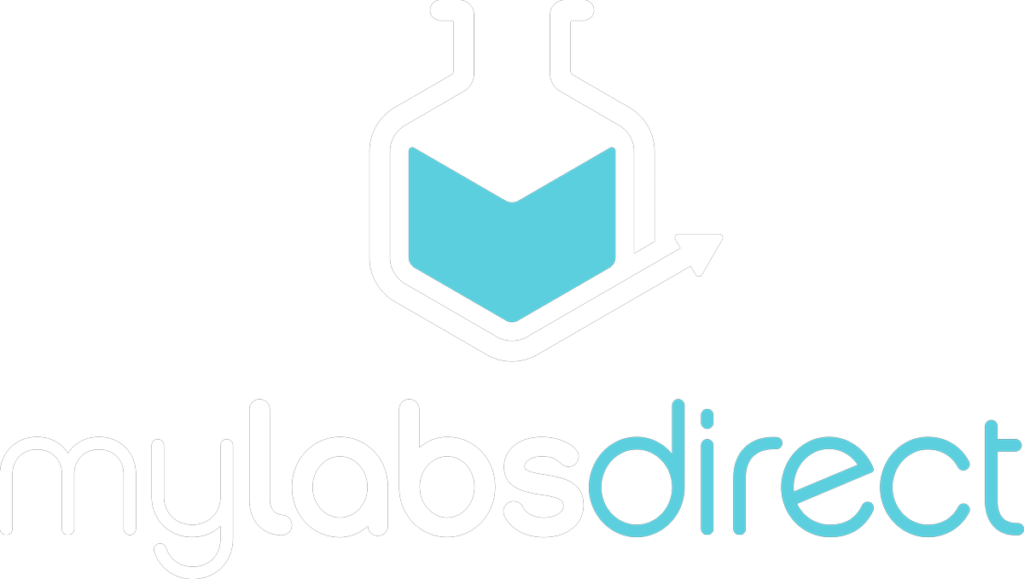Food Allergy vs. Sensitivity

According to the AAFA, about 32 million people have food allergies in the United States; and The Centers for Disease Control & Prevention reports that the prevalence of food allergy in children increased by 50 percent between 1997 and 2011.
With food allergies on the rise, our team at My Labs Direct wants to make sure you understand the difference between having a food allergy and food sensitivity or intolerance.
Below we discuss everything you need to know about how to tell the difference between the two.
How to know the difference between a Food Allergy and a Sensitivity
A true food allergy affects the immune system. Even small amounts of the offending food can trigger a range of symptoms, which can be severe or life-threatening. In contrast, food intolerance often affects only the digestive system and causes less severe symptoms.
If you have a food intolerance, you may be able to eat small amounts of the offending food without trouble. You may also be able to prevent a reaction. For example, if you have lactose intolerance, you may be able to drink lactose-free milk or take lactase enzyme pills (Lactaid) to aid digestion.
The body’s reaction distinguishes between a food allergy and sensitivity. The response brought on by a food allergy is spurred on by the immune system. The digestive system sets off a reaction if you have food sensitivity or intolerance.
According to the Mayo Clinic, causes of food intolerance include:
- Absence of an enzyme needed to fully digest a food. Lactose intolerance is a common example.
- Irritable bowel syndrome. This chronic condition can cause cramping, constipation and diarrhea.
- Sensitivity to food additives. For example, sulfites used to preserve dried fruit, canned goods and wine can trigger asthma attacks in people who are sensitive to food additives.
Symptoms of food sensitivity vary. But the symptoms of intolerance are all digestive-related. These can include:
- gas and bloating
- diarrhea
- constipation
- cramping
- nausea
What is a Food Allergy?
Healthline states that you have a food allergy when your immune system identifies a protein in what you eat as an invader, and reacts by producing antibodies to fight it.
The most common is an immunoglobulin E (IgE)-mediated reaction. IgEs are allergic antibodies. They cause an immediate reaction when chemicals, like histamine from mast cells, are released.
Food allergies can be fatal, unlike a food intolerance or sensitivity. In extreme cases, ingesting or even touching a small amount of the allergen can cause a severe reaction.
Symptoms of food allergy include:
- skin reactions, like hives, swelling, and itching
- anaphylaxis, including difficulty breathing, wheezing, dizziness, and death
- digestive symptoms
- Eight foods account for 90 percent of allergic reactions: milk, eggs, fish, shellfish, peanuts, tree nuts, wheat, and soybeans.
There are also non-IGE mediated food allergies. These reactions occur when other parts of the immune system are activated apart from IGE antibodies.
The symptoms of non-IGE reactions are typically delayed and occur primarily in the gastrointestinal tract. They include vomiting, diarrhea, or bloating. Less is known about this reaction, and in general, this type of response is not life-threatening.
What about Celiac Disease?
According to the Mayo Clinic, this chronic digestive condition is triggered by eating gluten, a protein in wheat and other grains. Celiac disease has some features of a true food allergy because it involves the immune system. Symptoms often include gastrointestinal issues and those unrelated to the digestive system, such as joint pain and headaches. However, people with celiac disease are not at risk of anaphylaxis.
If you are interested in discovering more about whether you have a food allergy or even Celiac Disease My Labs Direct offers the most convenient, accurate and efficient tests on the market. If you have any questions, concerns, or need testing, we can help. Contact My Labs Direct at 877-355-7978 or visit MyLabsDirect to learn more.

